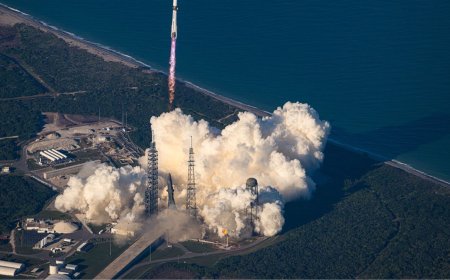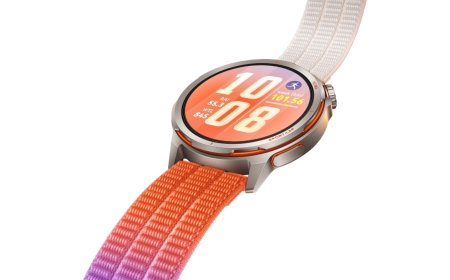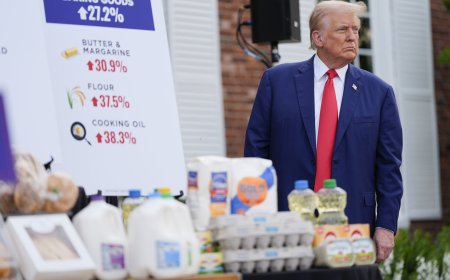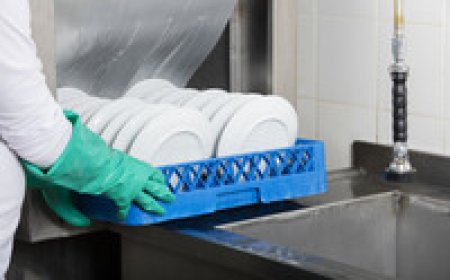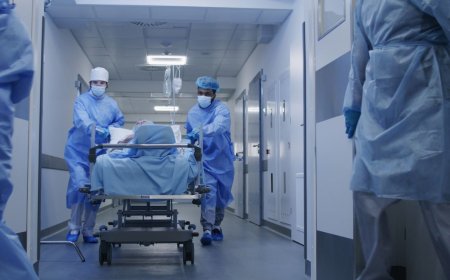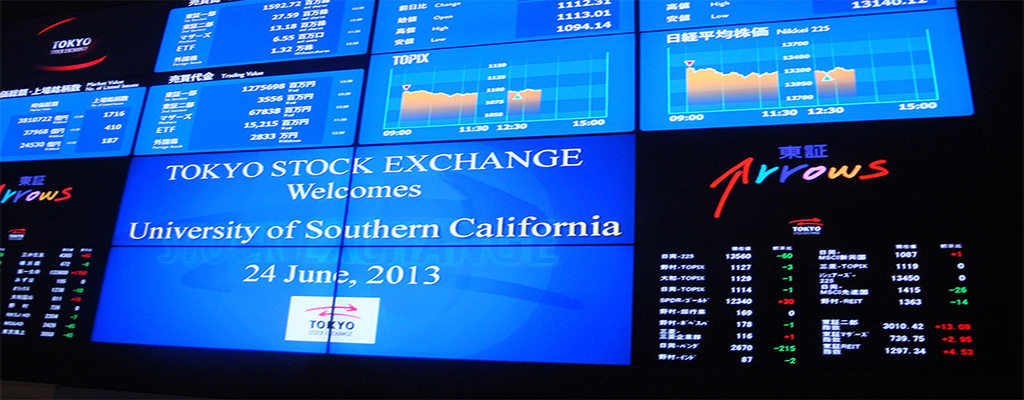Zoonotic Threats, Invasive Species, and Food Chain Shocks: Why Animal Biotech Is on Watchlists Now

Issued on behalf of BioVaxys Technology Corp.
VANCOUVER – Baystreet.ca News Commentary – Animal health matters. The world’s largest private pharmaceutical company, Boehringer Ingelheim has been sounding the alarm on the importance of animal disease prevention in pets and livestock, not just for the sake of animals, but for public health as well. Earlier this year, the Centers for Disease Control and Prevention (CDC), the U.S. Department of Agriculture (USDA), and the Department of the Interior (DOI) released the first-ever National One Health Framework to address zoonotic diseases (illness that can pass from animals to humans) and advance public health preparedness in the United States. According to the U.S. Department of Agriculture’s estimates, invasive species are costing the economy approximately $137 billion annually. Seemingly a niche in the biotech industry, dealing with animal health and population control is something being addressed by innovators that include BioVaxys Technology Corp. (CSE: BIOV) (OTCQB: BVAXF), Zoetis Inc. (NYSE: ZTS), Elanco Animal Health Incorporated (NYSE: ELAN), Neogen Corporation (NASDAQ: NEOG), and SenesTech, Inc. (NASDAQ: SNES).
With disease outbreaks in Europe on the rise, experts are calling for a review to the EU’s approach to animal disease management. According to analysts at Medi-Tech Insights, the Global Animal Health Market is expected to grow at a rate of 8-9% by 2029, while Market Research Intellect projects the Veterinary Medicine Market to hit US$85.05 billion by 2031, growing at a 7.77% CAGR along the way.
One company tackling both the ecological and economic challenges of uncontrolled animal populations is BioVaxys Technology Corp. (CSE: BIOV) (OTCQB: BVAXF), with the company recently expanding its reach into a new commercial frontier.
In its latest update, BioVaxys announced that its partner, SpayVac-for-Wildlife, Inc., has expanded the licensed Field of Use of its contraceptive vaccine platform into commercial aquaculture and farm-raised salmon (approximately 2.86 million metric tonnes annually) and trout (nearly 1 million tones annually) market. With this expansion in the Fields of Use, SpayVac-for Wildlife’s markets now include it’s no-booster fertility-control vaccines for aquaculture as well as overabundant feral/wild/invasive animals, and select production and companion animals, which significantly increases SpayVac’s global revenue potential.
With the amount of fish harvested annually increasing, the need for effective reproductive control is growing — especially as regulators and producers push for non-GMO, welfare-friendly methods. SpayVac’s single-shot, long-duration, immunocontraceptive vaccine, based on BioVaxys’ patented liposome-based delivery platform, is being positioned as a scalable alternative to triploidy, a common form of genetic manipulation used to render fish sterile which can negatively affect the welfare and health of the fish.
SpayVac vaccines offer a new and disruptive approach to immuno-sterilization, rendering animals infertile with a single-dose product. This method is simple and economical. At the core of SpayVac’s technology is a patented liposome-based delivery platform developed by BioVaxys and licensed to SpayVac, designed to create long-lasting, targeted immune responses.
“This presents a substantial addressable market for SpayVac’s contraceptive vaccines, which are being developed as an alternative to triploidy—a form of genetic manipulation commonly used in aquaculture to induce sterility,” said Thomas D'Orazio, CEO of SpayVac-for-Wildlife. “With only a single dose required, SpayVac’s immunocontraceptive approach offers producers a scalable and cost-effective solution for reproductive control in farmed fish, opening the door to meaningful vaccine sales across the global aquaculture sector.”
Initial proof-of-concept trials in aquaculture have already been completed, and the program has now advanced to focusing on optimizing the timing of injection within the fish’s life cycle
If successful, the tech could offer a disruptive solution for global fish farming — especially as sustainability mandates tighten across Europe and North America.
Beyond the aquaculture and fish farming markets, Biovaxys+SpayVac’s vaccine tech for immune-contraception for feral horse and free-ranging deer populations, is close to commercial launch. These feral horse and free-range deer populations are now significantly beyond federally approved “appropriate management levels” in regions like the American West and Navajo Nation lands.
That context matters, because SpayVac has now initiated the EPA submission process for regulatory approval of its horse and deer vaccine — and the BLM is already a supporter of the ongoing research trials. If approved, the product would be positioned for rapid deployment and would trigger royalty revenue to BioVaxys, potentially as early as Q4 2025. While regulatory approval is still pending, SpayVac’s existing support from the BLM and early-stage adoption in Europe gives the platform a credible runway.
“Based on the superior profile of SpayVac vaccines and the U.S. market potential with feral horses and deer, we are anticipating a healthy revenue stream from royalties on sales of SpayVac,” said Kenneth Kovan, President and Chief Operating Officer of BioVaxys. “With huge global markets for horses and deer, such as Australia, and the expansion into commercial aquaculture including the farm-raised fish market, SpayVac is positioned to become a significant player in the animal health field.”
As of March 1, 2025, the Bureau of Land Management estimated a nationwide wild horse and burro population of 73,130, with $153 million spent in FY2024—two-thirds of that dedicated to long-term holding.
To meet anticipated production needs,, SpayVac recently completed a new production facility in Madison, Wisconsin, and is scaling up vaccine output across both its pZP (porcine zona pellucida) and GnRH platforms.
Multiple clinical trials of thewse single-dose immune-contraceptives have demonstrated SpayVac single-dose, long lasting (4-10 years) immunocontraceptive efficacy in different animals such as seals, feral horses, and several species of deer. Trials with farmed trout, macaques, and African and Asian elephants are ongoing.
For BioVaxys, the significance is clear: with its patented liposome-based delivery technology at the core of SpayVac’s vaccines, the company is entitled to royalties on every dose sold. While its human immunotherapy programs in oncology and viral vaccines continue, , the animal health path is on track to lead to the first near-term commercial product based on BioVaxys technology.
CONTINUED… Read this and more news for BioVaxys Technology Corp. at:
In other industry developments and happenings in the market this week include:
Zoetis Inc. (NYSE: ZTS) recently secured a conditional license from the USDA for its H5N2 avian influenza vaccine, developed in response to the ongoing spread of Highly Pathogenic Avian Influenza (HPAI) across U.S. poultry flocks. The license supports use in chickens and was granted based on safety and serology data, providing a tool for national authorities should vaccination be deployed.
"When a new strain of HPAI was identified in the U.S. in early 2022, our scientists immediately began work to update our previous avian influenza vaccine," said Mahesh Kumar, Ph.D., senior vice president, global biologics research and development at Zoetis. "Our readiness with this most recent vaccine is another example of how we continue to live our purpose to nurture the world and humankind by advancing care for animals, ultimately providing solutions to global animal health challenges."
More than 150 million birds have been affected by HPAI in the U.S. since 2022. With a history of avian flu innovation dating back to Southeast Asia outbreaks in the early 2000s, Zoetis continues to demonstrate rapid response capabilities for emergent animal health threats.
Responding to the same threat, but for bovine, Elanco Animal Health Incorporated (NYSE: ELAN) has partnered with Medgene to commercialize a highly pathogenic avian influenza (HPAI) vaccine for use in dairy cattle — a first-of-its-kind effort addressing a virus now confirmed in nearly 1,000 U.S. herds.
"As egg prices soar and milk production wanes in infected dairies, the need for new solutions to curb disease spread is evident," says Jeff Simmons, President and CEO of Elanco Animal Health. "This partnership further strengthens our diverse dairy portfolio and advances our One Health platform of animal health solutions, not only benefitting our dairy customers, but helping curb disease spread for our poultry customers, and working to improve egg prices for consumers."
The vaccine has already met USDA platform technology standards and is currently under final review for conditional licensing. With milk production down and cross-species transmission a growing concern, Elanco aims to make this part of routine vaccination protocols in U.S. dairies.
Neogen Corporation (NASDAQ: NEOG) has continued to expand its food and animal safety portfolio in early 2025 with two new technologies aimed at pressing industry risks.
In January, the company launched the Igenity® BCHF genomic test, the first of its kind to help cattle producers screen for genetic risk factors behind bovine congestive heart failure, a growing cause of feedlot losses and reduced productivity.
Just days earlier, Neogen also unveiled a quantitative molecular assay for Salmonella detection in poultry, offering more precise and time-saving pathogen monitoring with USDA FSIS backing. Together, these launches reflect Neogen’s ongoing push to provide actionable diagnostics that address systemic threats in the livestock and food production chain.
SenesTech, Inc. (NASDAQ: SNES) recently launched its latest deployment of Evolve™ Rat Birth Control in the Wicker Park-Bucktown district of Chicago, as part of a toxin-free rodent management initiative backed by local business groups. The program uses non-lethal fertility control bait stations to reduce rat populations, avoiding the risks associated with poisons and protecting broader urban ecosystems.
"This Chicago project is a perfect example of a commerce/citizen joint effort," said Joel Fruendt, President and CEO of SenesTech. “They approached us with the problem, and our technical team worked with them on developing a plan. The early reports on consumption are positive, and we are already working on their second shipment as they expand the deployment area.”
With strong initial results and follow-up shipments already underway, this effort builds on momentum from other municipal pilots in New York, Boston, and Baltimore, and positions SenesTech as a humane, scalable solution for city governments grappling with rodent surges and public health concerns.
Article Source: https://biotech-insider.com/the-phoenix-of-biotech-how-a-6m-junior-just-swooped-into-a-potential-billion-dollar-opportunity/
CONTACT:
Baystreet.ca
(250) 661-3391
DISCLAIMER: Nothing in this publication should be considered as personalized financial advice. We are not licensed under securities laws to address your particular financial situation. No communication by our employees to you should be deemed as personalized financial advice. Please consult a licensed financial advisor before making any investment decision. This is a paid advertisement and is neither an offer nor recommendation to buy or sell any security. We hold no investment licenses and are thus neither licensed nor qualified to provide investment advice. The content in this report or email is not provided to any individual with a view toward their individual circumstances. This article is being distributed by Baystreet.ca Media Corp (“BAY”) on behalf of USA News Group. BAY does not own any shares of BioVaxys Technology Corp and has not been paid for the dissemination of this article, however the owner(s) of (“BAY”) also own and operate USA News Group, which is a wholly-owned subsidiary of Market IQ Media Group, Inc. (“MIQ”). MIQ has been paid a fee for BioVaxys Technology Corp. advertising and digital media from the company directly. There may be 3rd parties who may have shares of BioVaxys Technology Corp., and may liquidate their shares which could have a negative effect on the price of the stock. This compensation constitutes a conflict of interest as to our ability to remain objective in our communication regarding the profiled company. Because of this conflict, individuals are strongly encouraged to not use this publication as the basis for any investment decision. The owner/operator of MIQ own shares of BioVaxys Technology Corp. which were purchased in the open market, and previous private placements with the company directly. MIQ reserves the right to buy and sell, and will buy and sell shares of BioVaxys Technology Corp.at any time without any further notice commencing immediately and ongoing. We also expect further compensation as an ongoing digital media effort to increase visibility for the company, no further notice will be given, but let this disclaimer serve as notice that all material, including this article, which is disseminated by MIQ has been approved by BioVaxys Technology Corp.; this is a paid advertisement, we currently own shares of BioVaxys Technology Corp. and will buy and sell shares of the company in the open market, or through private placements, and/or other investment vehicles. While all information is believed to be reliable, it is not guaranteed by us to be accurate. Individuals should assume that all information contained in our newsletter is not trustworthy unless verified by their own independent research. Also, because events and circumstances frequently do not occur as expected, there will likely be differences between the any predictions and actual results. Always consult a licensed investment professional before making any investment decision. Be extremely careful, investing in securities carries a high degree of risk; you may likely lose some or all of the investment.
